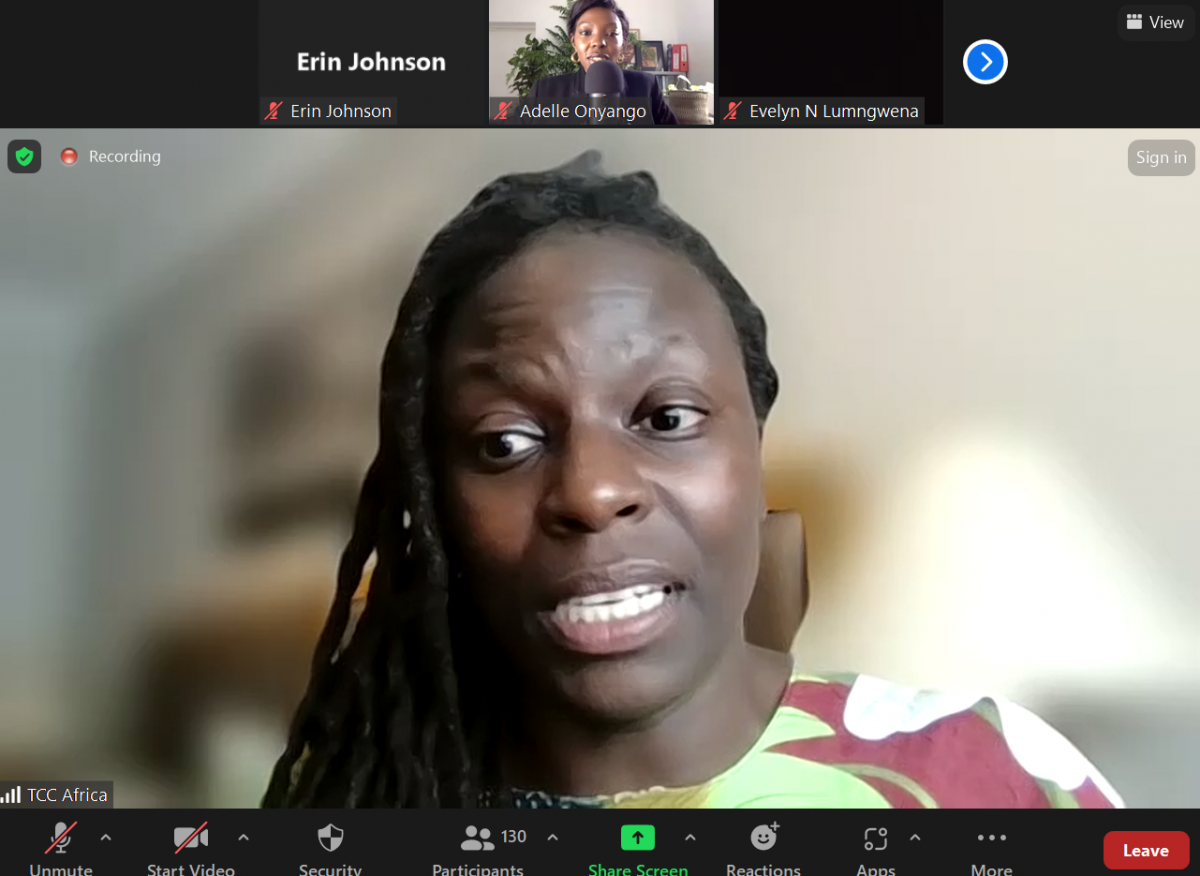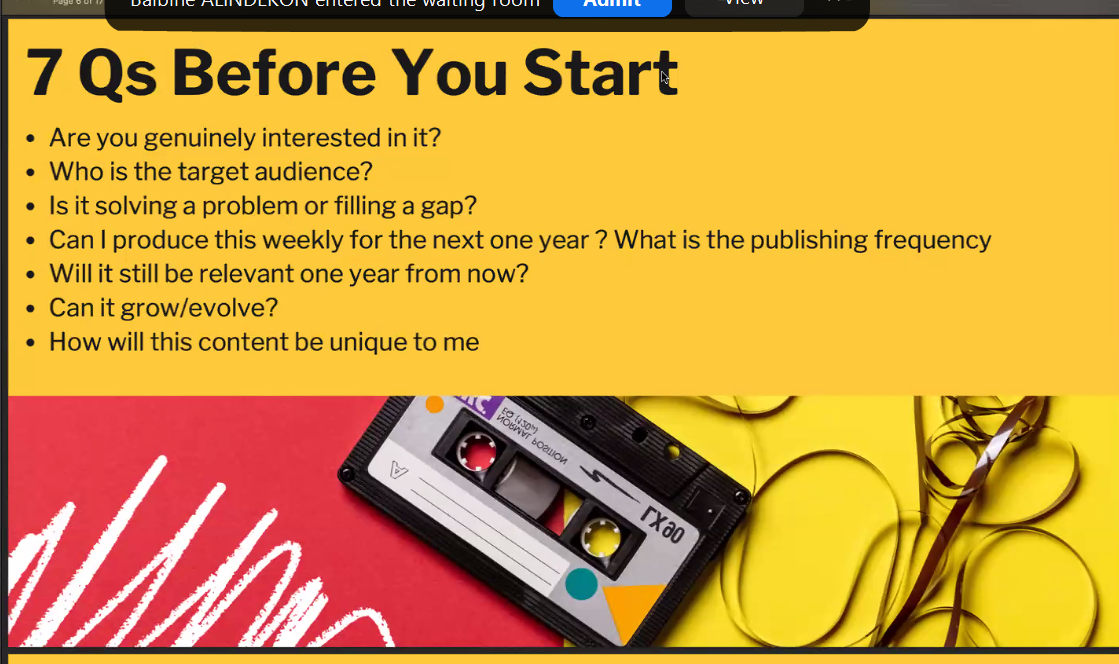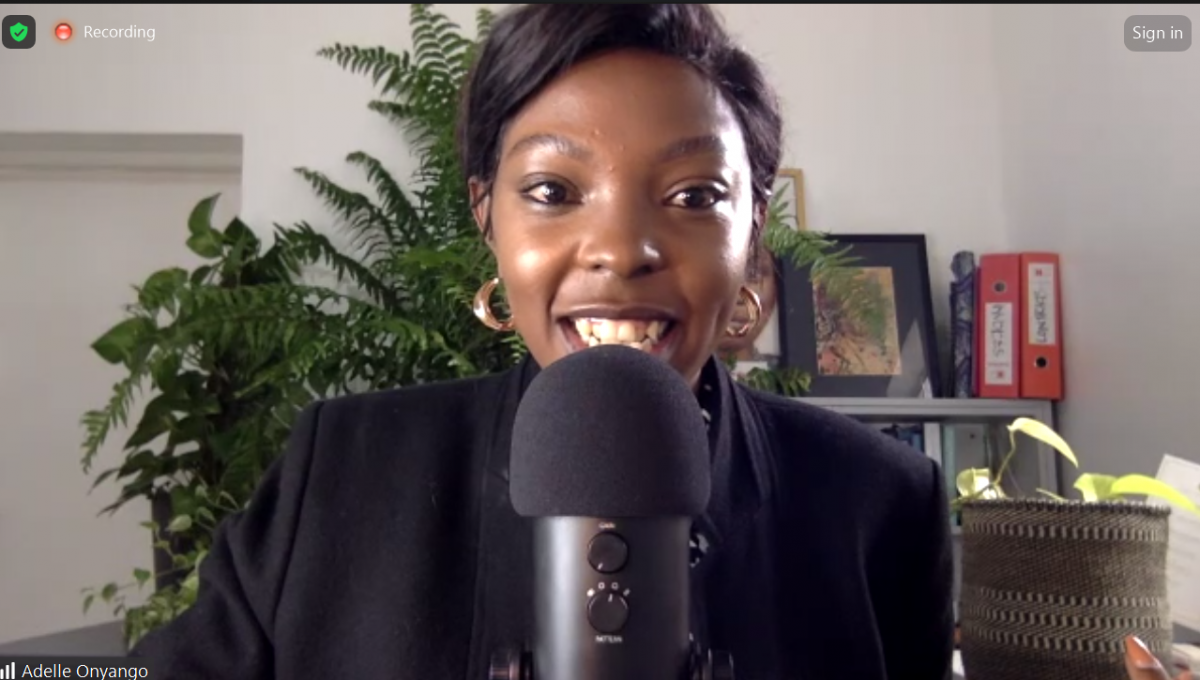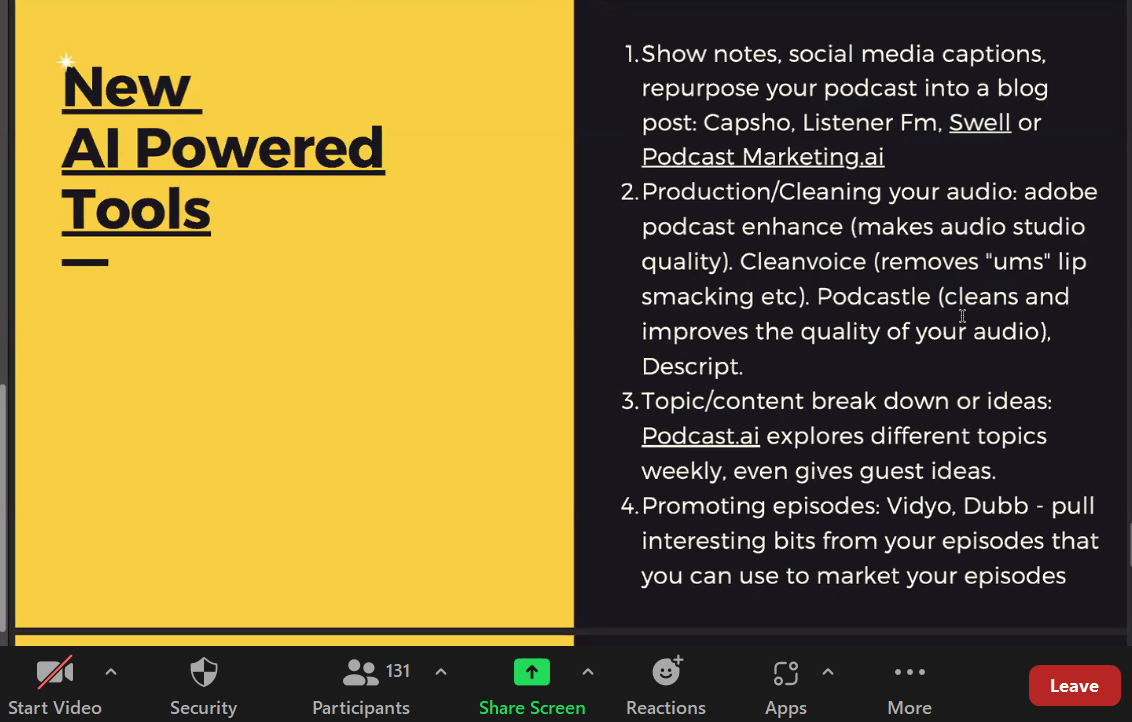OWSD members receive expert training in podcasting
July 05, 2023
Participants learned about producing their own podcasts, from how to make a podcast sustainable to how AI can help you edit and promote your podcast.
 More than 130 OWSD members took part in an online training on podcast production on July 5, 2023, delivered by experts Joy Owango from the Nairobi-based Training Centre in Communications (TCC) and Kenyan media personality Adelle Onyango, host of the Legally Clueless podcast.
More than 130 OWSD members took part in an online training on podcast production on July 5, 2023, delivered by experts Joy Owango from the Nairobi-based Training Centre in Communications (TCC) and Kenyan media personality Adelle Onyango, host of the Legally Clueless podcast.
Adelle took participants through a thorough explanation of the steps involved in podcast production, beginning with the content and how to make a podcast sustainable. “You need to keep the ball rolling, people need to know that you exist,” she said. "You don’t want to get to episode 5 and realize you’ve run out of ideas." She encouraged participants to think about how to create content that answers a question, informs, or fills a content gap.  She also talked them through how to craft an episode from start to finish, including how to hook listeners, set up a story, provide the 'meat' of the story, and finish with a punchline or 'mic-drop moment'. She shared the prep sheet she uses to prepare for each podcast episode, with the topic and basic script for the episode, guests to introduce, music to be used, and content for recurring segments.
She also talked them through how to craft an episode from start to finish, including how to hook listeners, set up a story, provide the 'meat' of the story, and finish with a punchline or 'mic-drop moment'. She shared the prep sheet she uses to prepare for each podcast episode, with the topic and basic script for the episode, guests to introduce, music to be used, and content for recurring segments.
Once the podcast has been recorded, she said, "It’s not the end, you have to start thinking about how can I market it for different social media platforms and get people listening to the podcast?” She asked participants to think about who their target audience is, and where are they already? For science podcasts, for example, podcasters may consider asking popular science newsletters to share their podcast, or to promote it at science conferences. Joy Owango shared additional tips about creating a teaser for each podcast episode to embed on existing websites.
 The training also covered technical aspects of podcast production, including what tools are available to keep costs low. It discussed different options for microphones, such as smartphone microphones or Blue Yeti microphones, and tips for increasing quality such as soundproofing recording rooms and making sure you have a very reliable Internet connection. It also introduced several ways in which AI can be utilized for podcast editing and promotion, including producing show notes and social media captions, cleaning up audio quality, breaking down topics, and extracting audio or video clips to use in promoting the podcast.
The training also covered technical aspects of podcast production, including what tools are available to keep costs low. It discussed different options for microphones, such as smartphone microphones or Blue Yeti microphones, and tips for increasing quality such as soundproofing recording rooms and making sure you have a very reliable Internet connection. It also introduced several ways in which AI can be utilized for podcast editing and promotion, including producing show notes and social media captions, cleaning up audio quality, breaking down topics, and extracting audio or video clips to use in promoting the podcast.
 Adelle finished her presentation with a few essential tips, including keeping overhead costs low by learning techniques of podcast production yourself, and carving out a consistent time in your schedule for the podcast to guarantee sustainability. The process can seem like a lot, she acknowledged. "Even with my 10 years of experience in radio, I still felt overwhelmed... but don’t get discouraged. We need more podcasts, we need more content.”
Adelle finished her presentation with a few essential tips, including keeping overhead costs low by learning techniques of podcast production yourself, and carving out a consistent time in your schedule for the podcast to guarantee sustainability. The process can seem like a lot, she acknowledged. "Even with my 10 years of experience in radio, I still felt overwhelmed... but don’t get discouraged. We need more podcasts, we need more content.”
Participants responded enthusiastically to the training, with a great number of comments and questions. “Thank you very much for such a informative session. I'm motivated to re-start the podcast I discontinued,” said Sabina Khatri, an OWSD member from Nepal and Secretary of the OWSD Nepal National Chapter.
“I hope the recording will be shared with us for reference. Really want to put it on practice,” said Sophia Isala, a member from Namibia and Vice-Chair of the OWSD Namibia National Chapter.
This podcast training was the first step in a more focused project to train OWSD members to produce their own podcasts. Participants were invited to submit podcast proposals to TCC; five proposals will be selected to receive additional, hands-on support from beginning to end in the production process.











































